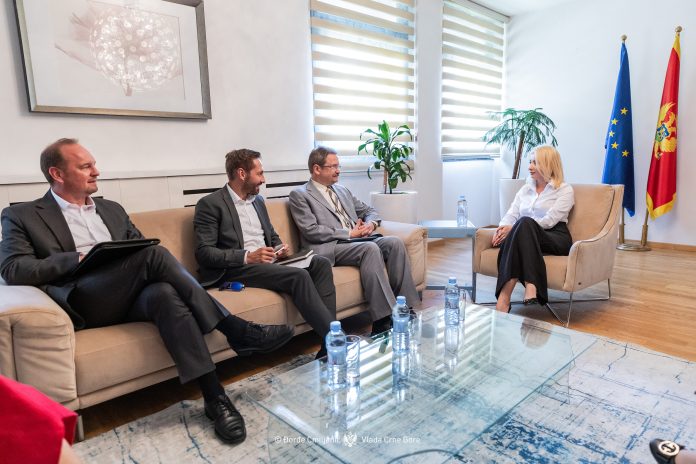After receiving a positive IBAR, Montenegro is entering the final, but also the most demanding phase of negotiations, for which it will need political, technical, and expert support, stated Minister of European Affairs Maida Gorčević at a meeting with the Director of the Division for the Western Balkans, Central Asia, and Eastern Europe at the German Society for International Cooperation – GIZ, Daniel Pason.
“We worked with great enthusiasm and dedication to meet the criteria for obtaining the IBAR, and I expect we will maintain the same energy as we continue our journey. We have already started mapping the chapters that are ready or close to internal readiness for closure,” said Gorčević.
She emphasized that the Montenegrin administration faces a significant task by the end of the year, and that, in addition to working on chapter closures, Montenegro will host major events and initiatives under the Hungarian Presidency of the EU Council.
Minister Gorčević expressed gratitude for the successful cooperation and contribution that the Government of the Federal Republic of Germany and GIZ provide to public administration reforms. During the talks, it was agreed to explore opportunities for continuing cooperation in areas where GIZ can provide technical and expert support, with a particular focus on the final benchmarks in the open chapters.
Pason stated that Montenegro’s recent progress in European integration is significant, as confirmed by the positive assessment for the IBAR at the latest Intergovernmental Conference. The significant progress Montenegro has made, especially in fundamental areas, demonstrates the new Government’s efforts to unblock the EU accession process.
He stressed that the current momentum in the integration process represents a crucial opportunity that Montenegro should seize. “It is important to maintain continuous efforts and unwavering commitment to continue addressing existing challenges and ensure further progress.”
Pason reminded that GIZ has been actively engaged in Montenegro for many years, collaborating with numerous institutions and successfully implementing various projects. The progress Montenegro has made is significant not only for its own integration but also for regional projects and cooperation among Western Balkan countries.
“This shows the commitment of the German Federal Government to support the Western Balkan countries on their path to the European Union,” said Pason, noting that this was an opportunity to discuss potential directions for additional support, focusing on areas where GIZ’s expertise could be particularly beneficial.
Besides GIZ representatives, the meeting was attended by the German Ambassador to Montenegro, Peter Falten.


